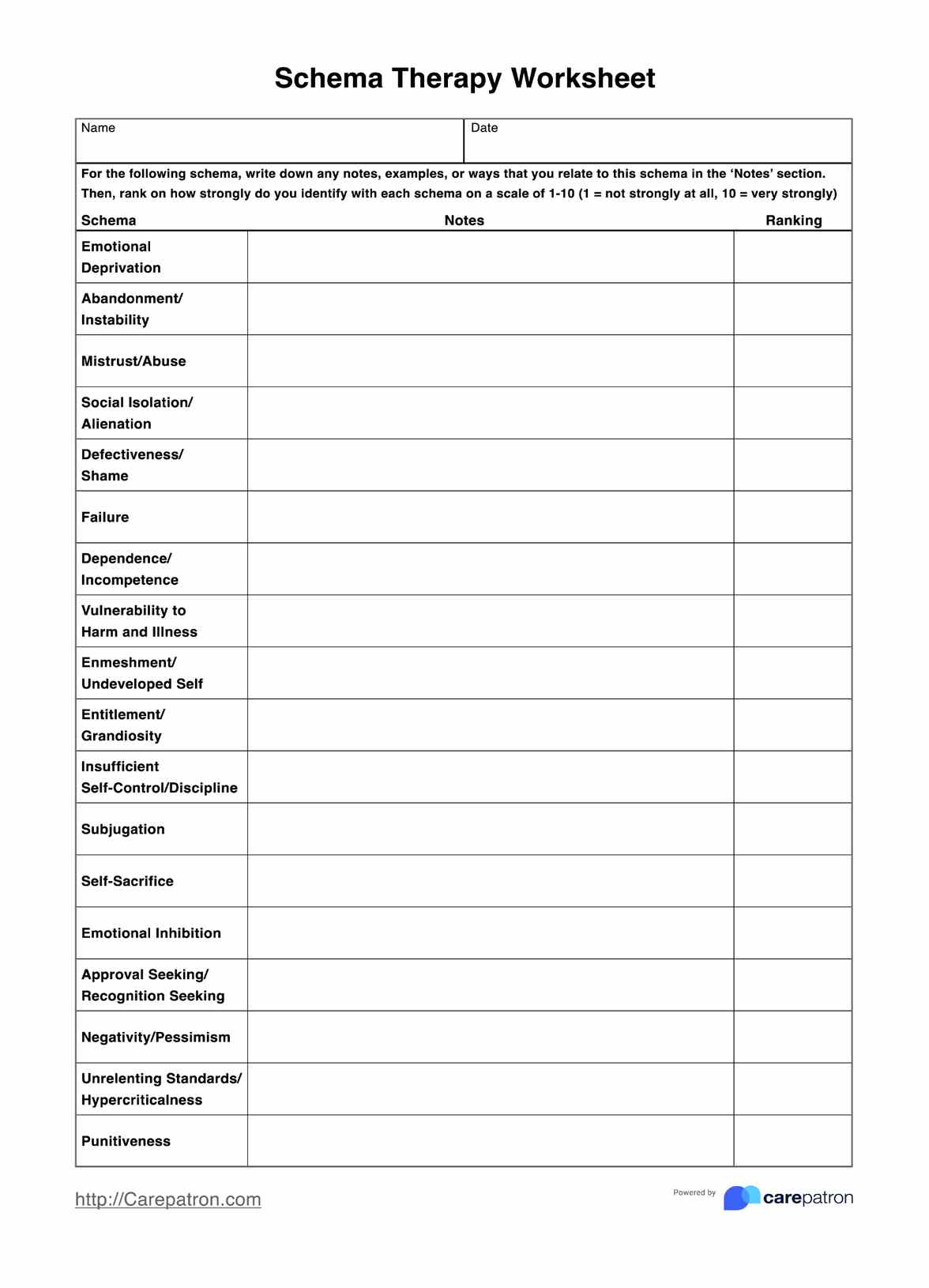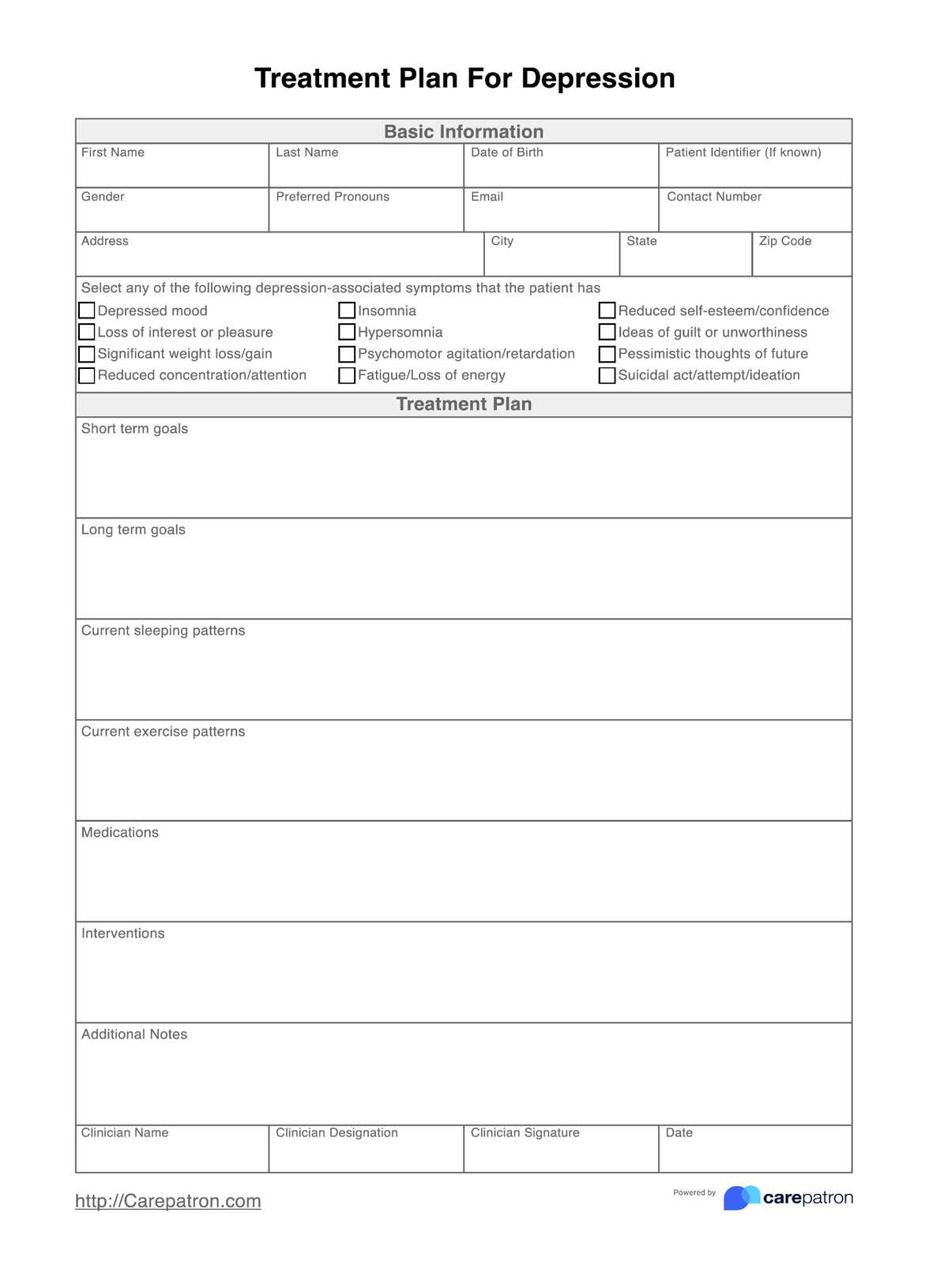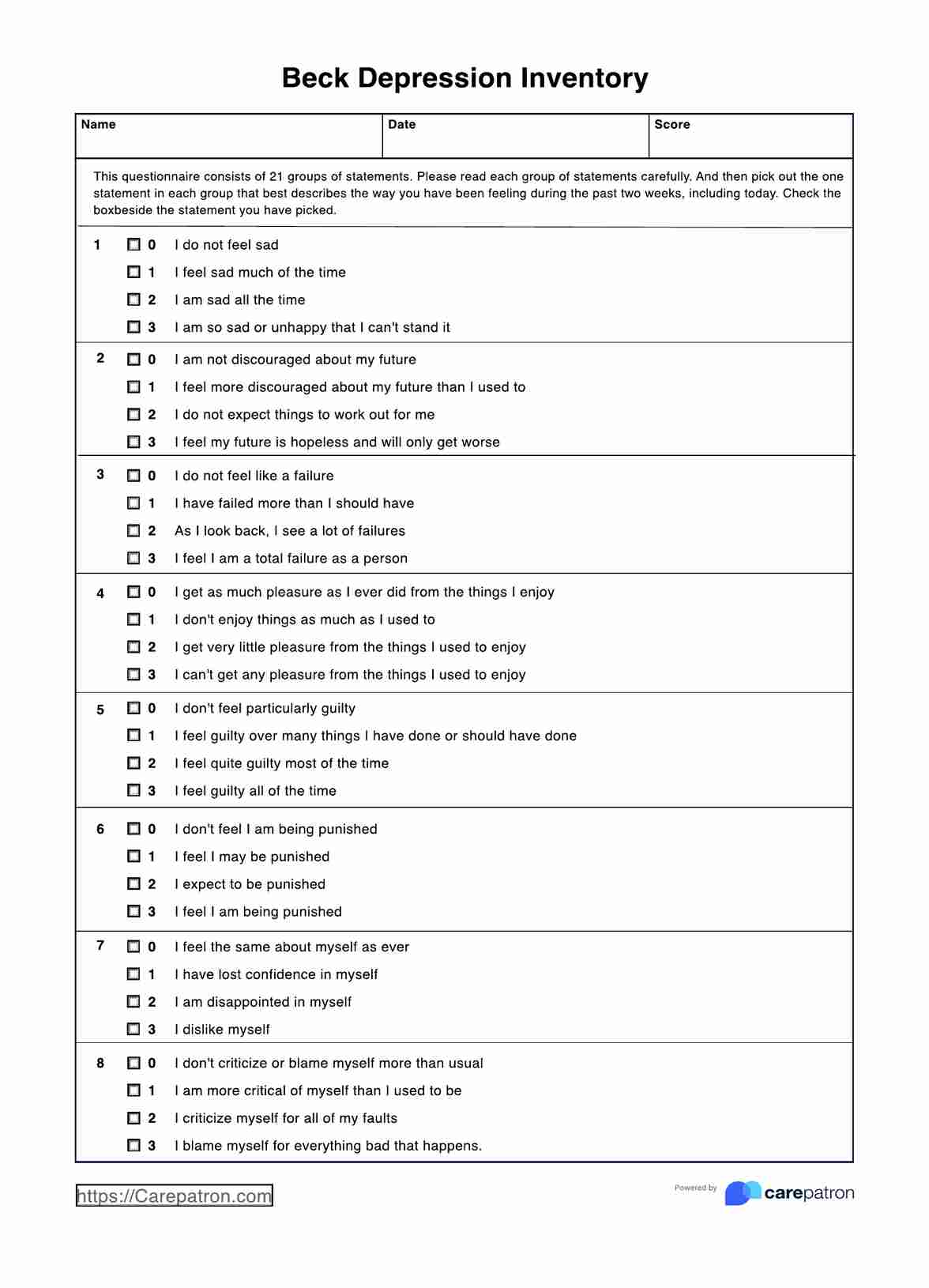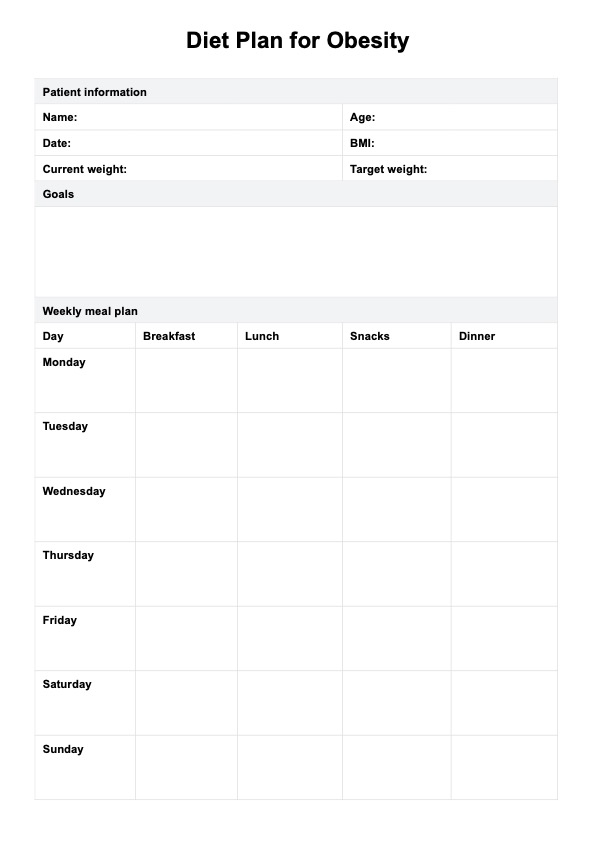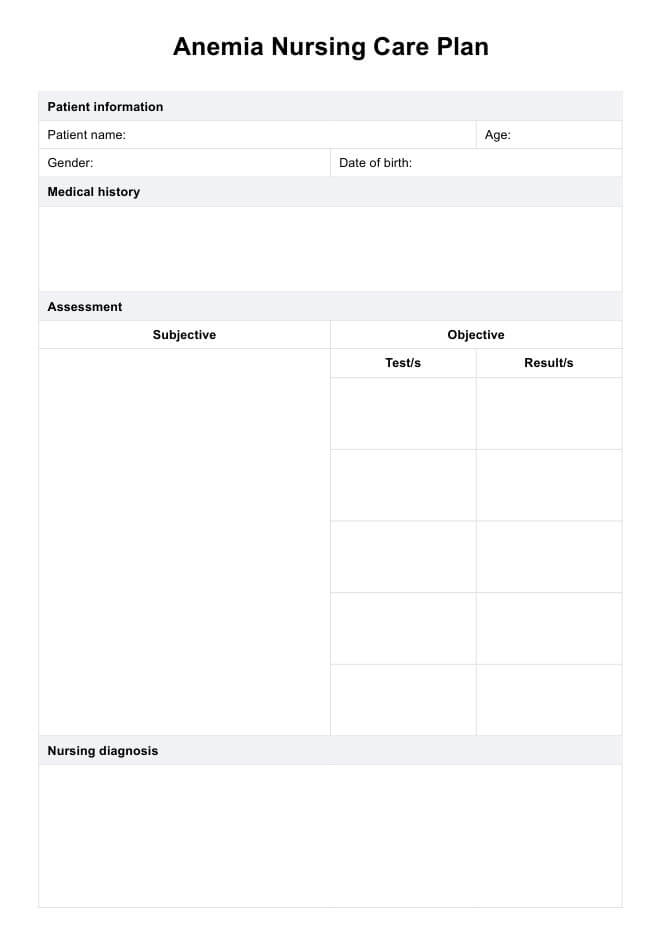Comprehensive Assessments
Gain deep insights into your health with our Comprehensive Assessments. Expert evaluations for informed healthcare decisions.


What are Comprehensive Assessments?
Comprehensive assessments in healthcare refer to thorough evaluations conducted to gather detailed information about a patient's health status, needs, and capabilities. These assessments involve a holistic approach, considering the physical, psychological, social, and environmental factors influencing a patient's well-being.
Comprehensive assessments are a foundation for developing personalized care plans and making informed clinical decisions. They encompass various components, including medical history, physical examinations, diagnostic tests, and assessments of functional abilities and psychosocial factors.
Medical history is crucial in comprehensive assessments, providing insights into past illnesses, surgeries, medications, and family medical history. Understanding a patient's medical background helps healthcare providers identify potential risk factors and tailor interventions accordingly.
Physical examinations systematically evaluate the patient's body, vital signs, organ functions, and overall physical health. These examinations help detect abnormalities, monitor progress, and identify signs of underlying health conditions.
Diagnostic tests such as blood tests, imaging studies, and specialized procedures are often integral to comprehensive assessments. These tests provide objective data to aid in diagnosis, treatment planning, and monitoring response to therapy.
Assessment of functional abilities evaluates a patient's capacity to perform activities of daily living, mobility, and cognitive functions. This aspect is particularly important for assessing the impact of illness or injury on a patient's independence and quality of life.
Psychosocial assessments focus on understanding the patient's mental health, emotional well-being, social support systems, and environmental factors affecting health outcomes. This includes assessing for depression, anxiety, social isolation, caregiver stress, and socioeconomic barriers to care.
Effective communication and collaboration among healthcare professionals, patients, and their families are essential throughout the comprehensive assessment process. This collaborative approach ensures that all relevant information is gathered, concerns are addressed, and treatment plans are developed with the patient's preferences and goals in mind.
Comprehensive assessments in healthcare involve a thorough evaluation of a patient's health status, encompassing medical history, physical examinations, diagnostic tests, functional assessments, and psychosocial evaluations. By considering multiple dimensions of health and well-being, comprehensive assessments facilitate the delivery of personalized and patient-centered care, ultimately improving outcomes and enhancing the overall quality of healthcare delivery.
Comprehensive Assessments Template
Comprehensive Assessments Example
How does it work?
Comprehensive Assessments offer a structured framework for healthcare practitioners to comprehensively evaluate a patient's health status, enabling well-informed and personalized care decisions. Follow these essential steps to utilize the Printable Comprehensive Assessment template effectively:
Step 1: Gather patient information
Begin by collecting pertinent patient details, including medical history, current medications, allergies, and family medical background. This foundational information forms the basis for a thorough assessment.
Step 2: Perform physical examinations
Conduct a comprehensive physical examination focusing on key organ systems, vital signs, and any specific concerns. Document objective findings meticulously to inform the overall assessment.
Step 3: Assess psychological well-being
Incorporate validated psychological assessment tools to evaluate the patient's mental health. Consider factors like stress levels, mood patterns, and coping strategies to gain insights into emotional well-being.
Step 4: Evaluate social determinants
Explore the patient's social context, including socioeconomic status, living conditions, and support systems. These determinants significantly impact health and guide the development of tailored interventions.
Step 5: Utilize advanced diagnostics
Leverage state-of-the-art diagnostic tests and imaging studies to supplement clinical observations. Incorporate results to enhance the accuracy of the assessment and identify potential underlying issues.
Step 6: Synthesize findings
Integrate the collected data from various assessment dimensions to overview the patient's health profile comprehensively. Identify connections between medical, psychological, and social factors.
Step 7: Establish patient-centered goals
Collaborate with the patient to set realistic and achievable health goals. Consider the patient's preferences, values, and aspirations to create a personalized care plan.
Step 8: Design tailored interventions
Develop a holistic healthcare strategy that addresses the identified health concerns. Incorporate medical treatments, psychological support, lifestyle modifications, and community resources as needed.
Step 9: Periodic reassessment
Regularly review and update the Comprehensive Assessment to track the patient's progress and adapt interventions accordingly. This iterative process ensures continuous alignment with the patient's evolving health needs.
When would you use this template?
The Comprehensive Assessment template is a versatile tool that can be employed across various healthcare scenarios, enhancing the quality of patient care and facilitating informed decision-making. Practitioners from different disciplines can benefit from this resource in the following contexts:
Primary care physicians
Use the Comprehensive Assessment template during initial patient visits to establish a comprehensive health baseline. It aids in identifying potential risk factors, tracking progress, and designing personalized treatment plans.
Specialists
Employ the template to conduct thorough evaluations for patients with complex medical conditions. Specialists can gain deeper insights into underlying factors influencing the patient's health by assessing medical, psychological, and social dimensions.
Mental health professionals
The Comprehensive Assessment template is invaluable for mental health practitioners as it integrates psychological evaluations, enabling a comprehensive understanding of patients' emotional well-being and aiding in treatment planning.
Geriatric care providers
Utilize the template to assess the holistic health of elderly patients. It helps identify age-related challenges, cognitive changes, and social support needs, guiding care strategies that promote healthy aging.
Chronic disease management teams
The template supports ongoing monitoring and management of chronic conditions. It assists in evaluating the effectiveness of interventions, adjusting treatment plans, and addressing potential barriers to improved outcomes.
Wellness coaches
Wellness practitioners can use the Comprehensive Assessment template to evaluate various aspects of an individual's well-being, including physical health, mental resilience, and social support systems. This comprehensive approach informs the creation of holistic wellness programs.
Rehabilitation specialists
For patients undergoing rehabilitation, the template aids in tracking progress, assessing emotional coping mechanisms, and identifying potential obstacles to recovery. It ensures a holistic rehabilitation plan tailored to the patient's needs.
Community health workers
This resource helps us understand the unique social determinants affecting health outcomes when working within diverse communities. It guides community health workers in connecting patients with appropriate resources and support networks.
Benefits
Certainly, here are the benefits of using this template for conducting Free Comprehensive Assessments:
Efficiency
This template streamlines the assessment process, allowing healthcare providers to gather and organize essential patient information swiftly and comprehensively.
Patient-centered care
The template helps healthcare professionals better understand a patient's medical history, providing a foundation for personalized, patient-centered care.
Early detection
By covering a wide range of health domains, the assessment aids in the early detection of potential health risks, ensuring timely intervention and treatment.
Preventive care
It recommends preventive measures, emphasizing the importance of proactive healthcare and disease prevention.
Health monitoring
The template serves as a structured record of a patient's health status, making it easier to monitor progress and evaluate the effectiveness of interventions over time.
Cost-efficiency
Utilizing this template can help healthcare institutions offer Free Comprehensive Assessments more efficiently and consistently, promoting community health and well-being.
Research & evidence
Comprehensive assessments in healthcare have garnered significant attention in research literature due to their importance in providing high-quality, patient-centered care. The history of research and evidence supporting their use dates back several decades, with a growing body of literature continuously adding to our understanding of their effectiveness.
Early studies in the 20th century laid the groundwork for comprehensive assessments by highlighting the value of taking a holistic approach to patient care. Over time, researchers have conducted numerous observational studies, clinical trials, and systematic reviews to assess the impact of comprehensive assessments on various healthcare outcomes.
One seminal study by Rubenstein et al. (1991) demonstrated the benefits of comprehensive geriatric assessment in improving the outcomes of elderly patients, including reducing hospitalizations and functional decline. This study provided robust evidence for the effectiveness of comprehensive assessments in optimizing care for older adults.
Subsequent research has further supported comprehensive assessments across patient populations and healthcare settings. For example, a systematic review by Salinas et al. (2017) evaluated the impact of comprehensive assessments on patient outcomes in primary care and found positive effects on health-related quality of life, patient satisfaction, and healthcare utilization.
Recent studies have also explored the role of comprehensive assessments in specific clinical contexts, such as chronic disease management, palliative care, and mental health services. For instance, a randomized controlled trial by Greenhalgh et al. (2020) examined the effectiveness of comprehensive assessments in improving outcomes for patients with multimorbidity, highlighting the importance of tailored interventions based on individual needs.
References
Greenhalgh, T., Papoutsi, C., & Studying Networks Group. (2020). Studying complexity in health services research: desperately seeking an overdue paradigm shift. BMC Medicine, 18(1), 1–12.
Rubenstein, L. Z., Stuck, A. E., Siu, A. L., & Wieland, D. (1991). Impacts of geriatric evaluation and management programs on defined outcomes: overview of the evidence. Journal of the American Geriatrics Society, 39(9 Pt 2), 8S-16S.
Salinas, G. D., Glauser, T. A., Williamson, J. C., & Rao, G. (2017). An evidence-based approach to identify elderly patients for comprehensive geriatric assessment in the emergency department. Western Journal of Emergency Medicine, 18(5), 927–937.
Commonly asked questions
A Comprehensive Assessment is important because it provides a holistic understanding of your health, considering various factors like medical history, physical health, mental well-being, and social support systems. This enables healthcare providers to develop personalized care plans and make informed clinical decisions.
During a Comprehensive Assessment, you can expect to undergo a thorough evaluation, including a review of your medical history, physical examinations, diagnostic tests, assessments of functional abilities, and psychosocial evaluations, all aimed at gathering detailed information about your health status, needs, and capabilities.
During a Comprehensive Assessment, you can expect to undergo a thorough evaluation, including a review of your medical history, physical examinations, diagnostic tests, assessments of functional abilities, and psychosocial evaluations, all aimed at gathering detailed information about your health status, needs, and capabilities.


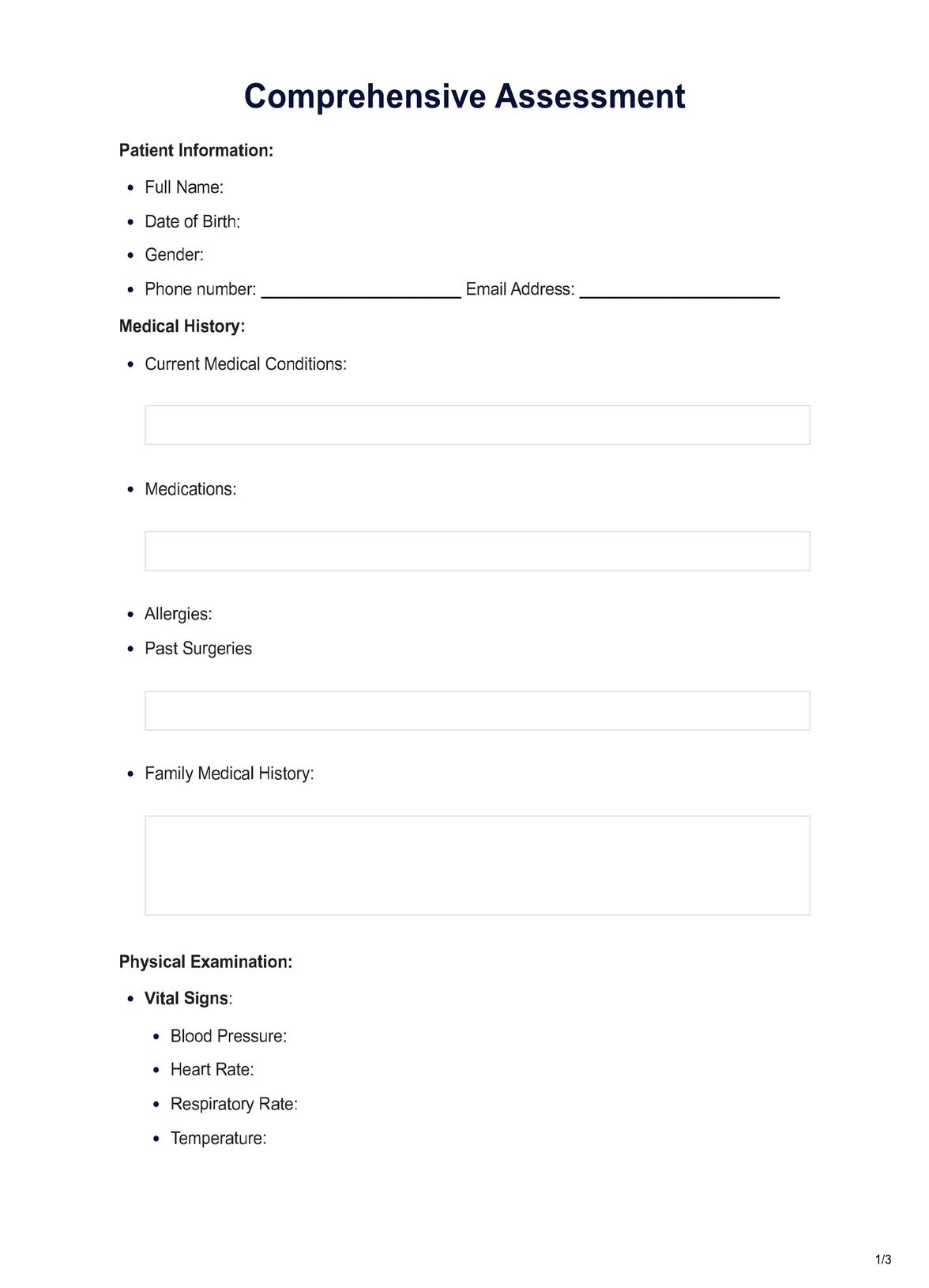
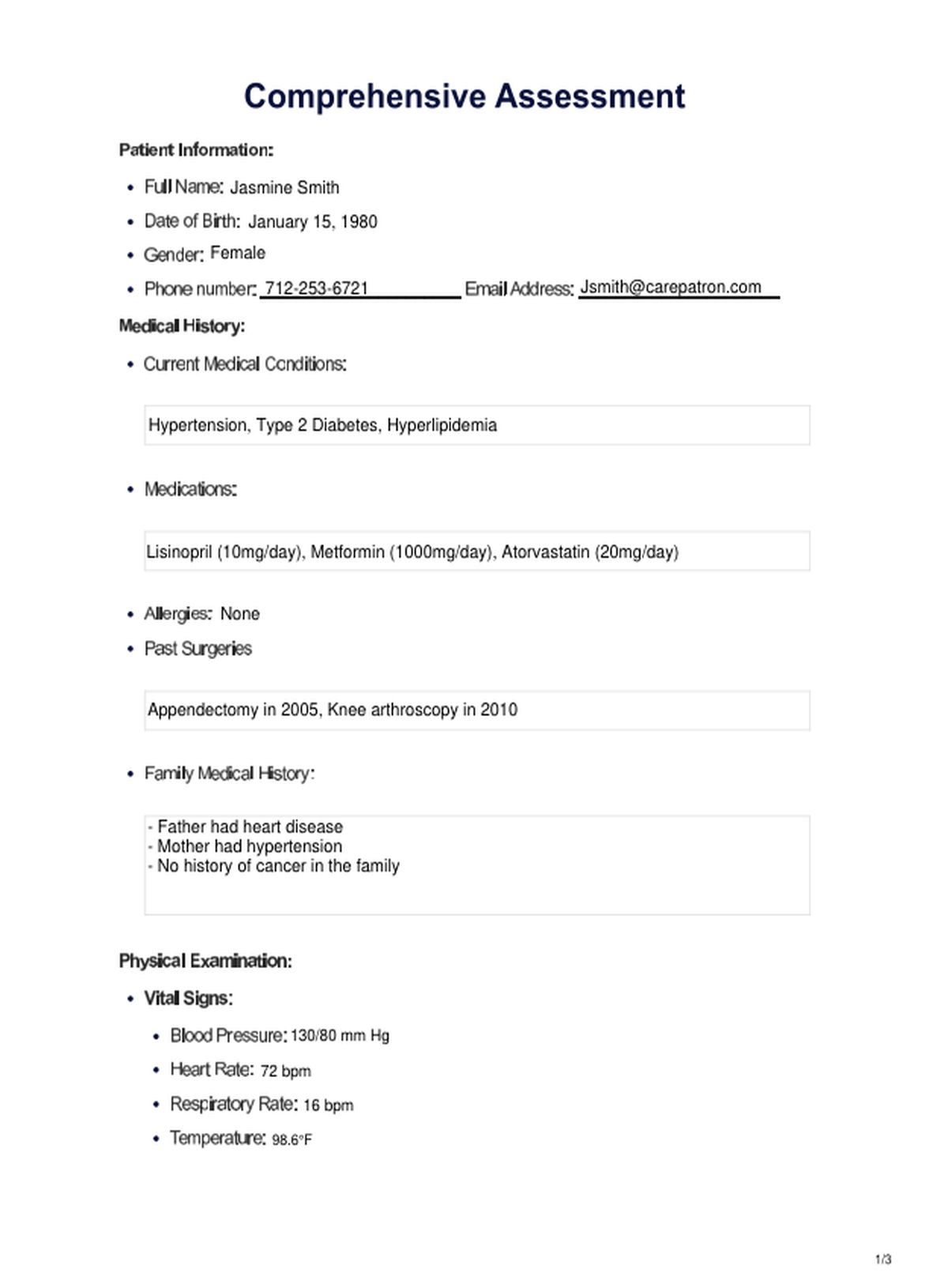


















-template.jpg)


















































































